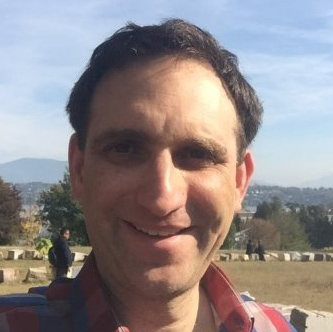
OpEds

Israel on slippery slope of state capture with judicial reforms
An independent judiciary played an important role, along with the public protector and the media, in preventing the collapse of South African constitutional democracy into a system designed simply to serve the corrupt interests of a political and business elite. Unfortunately, we see a similar pattern of state capture at play in Israel – the Israeli government is engaged in an unprecedented attempt to undermine its judicial system as well as any other breaks on abuses of power.
Israel’s first Knesset sitting was supposed to draft a constitution for the fledgling state. Due to a failure to agree on its core principles, it was decided to adopt one in stages, in the form of “basic laws”. This work has not been completed nearly 75 years on, and Israel’s constitutional framework remains partial and weak. A Knesset majority of just a single vote can change much of the constitutional structure of the country.
The right-wing coalition government, formed in the wake of the November 2022 elections, will introduce to the Knesset this week one of the most important proposed revisions to these basic laws – a bill that seeks to change the manner in which judges are appointed.
Similar to South Africa, but with a slightly different composition, Israel has an appointments committee tasked with selecting judges. It is finely balanced with nine members that, in essence, combine elected representatives with judges and representatives of the bar association. Appointments to the Supreme Court require seven members of the committee to agree. The current composition and rules, while not perfect, ensure that there’s a large measure of consensus on the merits of the appointee, and are designed to prevent individuals from being appointed purely based on a political or personal agenda. The proposed reform seeks to shift the balance on the committee to enable the coalition of the day to appoint whichever judges it wishes.
That is a terrible idea, and will potentially undermine the independence and legitimacy of the judges as well as the separation of powers. Part of the whole point of a judiciary is to have individuals appointed with legal expertise and critical faculties who can consider cases before them in an impartial manner and based on the merits. Judges place a check on other branches of government, ensuring that they operate within their competencies, are not corrupt, and do not impinge on the fundamental rights of individuals. Appointing individuals based on their political ideologies undermines that very basic facet of the judiciary, and suggests that those with different views will not receive a fair hearing. Even more worrying is the notion that judges will be appointed to high office to pursue the agendas of politicians with the result that, whether in business or criminal law, if you are of the right political persuasion, you can be reasonably sure that cases will always be decided in your favour. When you reach that point, effectively, you no longer have any effective check on political power – state capture and tyranny await.
Why are such dangerous reforms being considered? Unfortunately, there is a toxic confluence of three forces in the coalition. The first is Prime Minister Benjamin Netanyahu, who is under indictment for bribery and for trying to interfere with the independence and integrity of the media. The indictments themselves are about undermining a key facet of democracy, namely an independent media. Israel generally has a sensible rule that a minister under indictment must step down pending the conclusion of their trial. A puzzling judgment of the Supreme Court – perhaps trying to avoid the sense that it was politically motivated – found that this rule did not apply to the prime minister, paving the way for Netanyahu to continue to be a prime minister even under indictment. That was a massive mistake. Netanyahu is desperate to avoid conviction, and has shown himself willing to undermine the judicial system to ensure he is acquitted. If judges with personal connections to Netanyahu are appointed now and could eventually rule on an appeal of any conviction in the future, Israel is on that slippery slope to state capture at the highest level.
The second dimension is the ultra-Orthodox segment of the coalition. It has always adopted an approach to the state based on how to extract the maximum for its constituency. With a religious perspective that they know the ultimate truth and may impose it on others, the ultra-Orthodox MKs are not committed to individual freedom or allowing for diverse expressions of Jewish identity. In the early 1990s, the ultra-Orthodox parties prevented the basic law, which contains many important fundamental rights from recognising a right to equality. Courts have placed limits on their demands, and sought to balance interests in Israeli society: preventing gender segregation in buses, for instance, and requiring there to be a segment of the Kotel where women and men can pray together. Undermining the court system and separation of powers could remove constraints on their power, allowing for widespread gender segregation and religious coercion by the state.
The final and perhaps most worrying force is the moral corrosion of Israel caused by more than 55 years of occupation and the concomitant rise of the settlement movement and ultra-nationalist right. The famous Orthodox thinker and Torah commentator, Yeshayahu Leibowitz, spoke prophetically in 1968 of the “corrupting” influence of occupation and how Israel could not be called a democracy if it deprived more than 2.5 million Palestinians of civil and political rights. The traditional riposte has been that Israel is temporarily occupying these territories pending a peace agreement. Yet, when Prime Minister Netanyahu says that Israel intends to settle all areas of the West Bank, and there’s no good-faith effort on the part of Israel to end the occupation, the only conclusion is that the government intends to continue to rule over the Palestinian people there perpetually without granting them any political rights.
Moreover, to maintain the occupation, there will be a need for continued use of significant force, with large numbers of Israeli youth already becoming accustomed to staring down another people at the barrel of a gun. Any semblance of the rule of law is undermined by settlements, which are grave violations of international law and essentially legitimate theft and dispossession of Palestinian land, which some landowners have held for centuries. The erosion of basic democratic norms do not remain confined to the West Bank but cross over into Israel within the green line – consider how relatively little protest ensued when surveillance techniques used on Palestinians were turned on Israel’s own population during the COVID-19 pandemic. The judges in Israel have unfortunately also multiple failings in not addressing the excesses of occupation and failing to declare settlements illegal, yet, on occasion, they still place some constraints on what may be done. If the current constitutional “changes” succeed in ensuring the judiciary is made up wholly of ultra-nationalists, these limited restraints will disappear.
The upsurge of protest in Israel against these grievous “reforms” is heartening. They show us that there remain a sizeable number of people concerned to ensure that corruption – ideological and personal – does not become embedded in the foundations of the state. Economic and international pressure may yet succeed in weakening these measures. We should hope they do. One of the seven laws of Noah drawn from our Jewish tradition is that all peoples are supposed to establish independent courts of law. A state without an independent judicial system will neither be Jewish nor democratic.
- Prof David Bilchitz is a professor of Fundamental Rights and Constitutional Law at the University of Johannesburg and the University of Reading, director of SAIFAC (the South African Institute for Advanced Constitutional, Public, Human Rights and International Law), and vice-president of the International Association of Constitutional Law.











Choni Davidowitz
February 23, 2023 at 4:41 pm
How can you have this individual write about Israel. He might be a professor of human rights, but he knows nothing about Tanach.
Dairy
February 23, 2023 at 11:32 pm
The first part of this article gives a relatively factual description about one of the judicial changes being introduced. Funnily enough, the writer omits significant other changes being made to the judiciary!
The second part of the article is blatantly subjective. For example, the court has indeed declared some settlements illegal and even enforced their removal; another completely inaccurate example is the insinuation that Israel deprives millions of Palestinians of civil rights…I ask you – When did you last visit an Israeli hospital, mall, or educational institution? There are two Arab parties in the Israeli knesset – who do you think voted for them?
There are many other points of inaccuracy in this article but one of my favorites is of the description of Yeshayahu Leibowitz as a Torah commentator. He was a professor of chemistry and neurophysiology and a prolific writer on Western and Jewish thought. Calling him a Torah commentator is a simplified and misleading description.
In summary, lacing your article in sophisticated jargon, does not absolve you of the responsibility to write about the facts as they are.
Graham Celine
February 24, 2023 at 9:34 am
Finally someone in South Africa speaks out and recognizes the corruption of government and racist direction Israel is adopting. You can slander this writer as much as you want, these laws are leading Israel to be a very dark place that will bolster anti Israel supporters and destroy the Jewish state. And the most important point is that this is all to keep Netanyahu out of jail. Sounds a bit like Zuma doesn’t it?